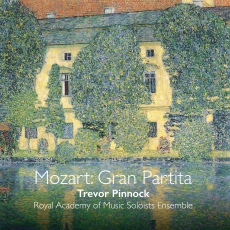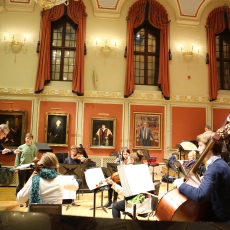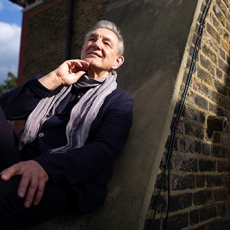Royal Academy of Music Soloists Ensemble & Trevor Pinnock - Mozart: Gran Partita - Primephonic
Performance: four stars
Sound: five stars
Even the most venerated of musicians were students once. Sometimes we need to pause and take stock of just how accomplished the young musicians of the UK's music colleges really are (especially now - the conservatoires unfortunately stand to suffer some blows if and when the UK goes crashing out of the EU). The multinational ensemble on this beautiful CD serves as ample proof, sparked into joyous response by the veteran baroque and classical expert Trevor Pinnock.
Mozart's Gran Partita is a giant box of delights, with seven movements including two minuets and two slow movements; it may originally have been conceived as two separate works, but it's our treat that it is now just one. The exact date of its composition is uncertain, but Mozart's deft, operatic hand can be sensed at every turn. The bubbly opening and finales are a side-step away from his music for Il Seraglio and Le nozze di Figaro; the first Adagio could have served as one of his most heavenly duets, had he wished, and if you've seen Peter Shaffer's Amadeus, you may remember Salieri's awestruck response to the oboe note that soars on and on as if disconnected from time itself. Listen out for the light-as-feathers bassoon and clarinet staccatos, the plangent oboe solos, the gorgeously sung phrasing, the irresistible rhythmic bounce.
The Haydn Notturno in G was one of a set written for performance at the court of Naples around the late 1880s and if it is less of a masterpiece than the Mozart work, it is no less engaging for that, especially given its unusual instrumentation, which includes two "lira organizzate", a bizarre cross between a hurdy-gurdy and an organ.
Lovingly produced by the RAM's own principal, Jonathan Freeman-Attwood, the recorded sound is close - you can sometimes hear the instruments' keys moving - but within a pleasingly resonant acoustic (the lovely St George's, Bristol) in which instruments move effortlessly to the texture's fore and back again, resulting in a colourful, flexible tapestry of collegial excellence.
As the notes declare, describing an essential symbol of the German Enlightenment: "The light of reason, knowledge and order banishes the darkness of superstition, ignorance and chaos." We may feel the need for such light at the moment; Mozart and Haydn continue to offer it in the doses that they alone could muster, as they have for more than 200 years. I think this Gran Partita might just come with me to my desert island.


